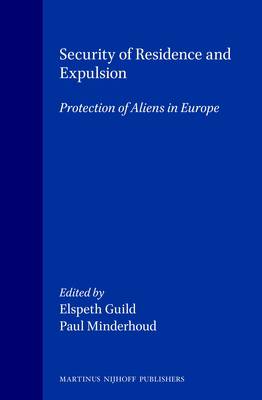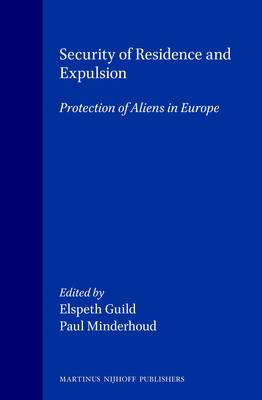
- Retrait gratuit dans votre magasin Club
- 7.000.000 titres dans notre catalogue
- Payer en toute sécurité
- Toujours un magasin près de chez vous
- Retrait gratuit dans votre magasin Club
- 7.000.0000 titres dans notre catalogue
- Payer en toute sécurité
- Toujours un magasin près de chez vous
Security of Residence and Expulsion
Protection of Aliens in Europe
337,45 €
+ 674 points
Description
Although all European states grant some form of secure residence status to foreign nationals, substantial differences persist among them in the rights pertaining to that status, the grounds for losing it, and the degree of protection against expulsion. This volume explores the law protecting aliens in Europe under four headings: - The legal framework provided at the European level by the European Convention on Human Rights (especially Articles 3 and 8), its case law, and various subsidiary instruments of the Council of Europe; evolving European Union law based on the principle of freedom of movement, agreements between the EU and non-member states, and the 1997 draft convention on migration policies; and the implementation of this supra-national law at the national level; - The effect in the Nordic region and the Common Travel Area of the abolition of border controls, with special attention to the question of compensatory measures; - The issue of double jeopardy arising from the use of expulsion in conjunction with a criminal sentence, as illustrated in French and German case law; - The legal `balancing act' required in many cases to protect the public interest without violating a person's legitimate right to a secure residence, taking into consideration the potentially conflicting interests of the receiving state and the foreign national. Security of Residence and Expulsion: Protection of Aliens in Europe offers clear guidelines for policymakers on harmonising the principles underlying legislation in this area of critical and growing importance in European life. It will be of great value to practitioners and academics concerned with the extension of existing rules governing security of residence and protection against expulsion for long-term immigrants and their families.
Spécifications
Parties prenantes
- Editeur:
Contenu
- Nombre de pages :
- 256
- Langue:
- Anglais
- Collection :
- Tome:
- n° 1
Caractéristiques
- EAN:
- 9789041114587
- Date de parution :
- 01-01-01
- Format:
- Livre relié
- Format numérique:
- Genaaid
- Dimensions :
- 155 mm x 235 mm
- Poids :
- 655 g

Les avis
Nous publions uniquement les avis qui respectent les conditions requises. Consultez nos conditions pour les avis.





